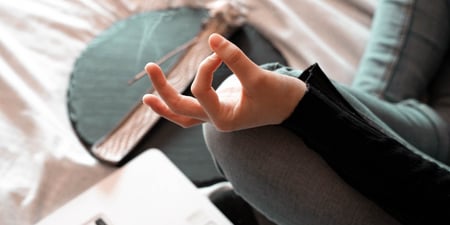Finding Strength In True Relaxation
George Dellas
|
4 Mar 2025

Let's Not Sugar Coat It
Across the globe, we are feeling sadder, more stressed and experiencing more pain than ever, according to Live Science journalist, Rachael Rettner. Written in 2018, this article referred to a survey that identified a worldwide increase in negative emotions which had peaked at that time in 2017, with positive emotions dipping[1].
Closer to home, a 2019 report, "The Cost of Pain in Australia" revealed the significance of how pain impacted the country and its people. According to this report, 3.24 million Australians are living with chronic pain which has a detrimental impact on quality of life[2]. To top this, it also reported that in 2019 suicide was the leading cause of death among young people in Australia[3].
On a positive note, there is hope for change by becoming aware of the scientific world of neuroscience. It is commonly understood that with repeated and directed attention towards a desired change, we can rewire our brain. If we rewire our brain, then we can rewire our reality - ultimately supporting and building our inner strength.
What we all need to clarify is "what is the desired change and how many repetitions do we need to rewire our brain?".
How I see it, the desired change is not a reactive change. For example, if we are feeling stressed, then we want to be relaxed, or if we are overweight, we want to reduce our weight, and so on. These are reactive changes! Why? Because if we were not stressed, then wanting to relax would not be an issue for us.

What then is the desired change? It is something most of us have already experienced, but it has not yet become our habit: it is our feelings of pleasantness.
Stop for a moment and recall an event which triggered feelings of pleasantness. In that moment of pleasantness, you would have felt relaxed, had more energy, felt like you could achieve anything, and nothing else mattered in that moment. However, this feeling was likely short-lived because living and time continues on and the event that triggered pleasantness passes.
Provided you have had one experience of pleasantness, it's now time to consider creating your pleasantness habit.
Every time we think in a pleasant way, practice tasks of being pleasant, and reconnect to our feelings of pleasantness, we are creating neural pathways for pleasantness to become our habit.
How Long Will This Take?
According to a research article titled "How are habits formed: modelling habit formation in the real world", using one real world cue, such as on waking, before going to bed, or before eating a meal, it can take anywhere from 18 to 254 days to create a habit. If we use more than one cue a day, then it’s feasible to speed up our habit-making process.
In addition, according to psychologist Rick Hansen, we need to also deliberately focus our mind on the experience (of pleasantness) for the critical threshold of roughly 10 or 20 seconds in order to create change[4].
You can use 20 seconds of focused abdominal breathing (that’s two breath cycles of breathing in for five seconds and out for five seconds) whilst focusing on pleasantness so that you also benefit from the relaxing effects of conscious breathing[5].

These different researchers inspired me to create My Pleasant Moment Recall Journal as a tool to assist my clients to start the process of creating their pleasantness habit.
It’s now time to reorientate our aim towards past experiences of feeling pleasant so that we can start the process towards creating our pleasantness habit.
Before we know it, we become the essence of pleasantness and relaxation.
Isn’t now our time to relax?
References
1. Rettner R. People across the globe feeling more sad, stressed and in pain than ever. LiveScience; 2018.
2. Deloitte. The cost of pain in Australia. https://www.deloitte.com/au/en/services/economics/analysis/cost-pain-australia.html; 2019.
3. Suicide & self-harm monitoring. AIWH; 2025.
4. Buczynski R, Hanson R. Practical Brain Science, Transcript of: How Good Experiences Can Transform the Brain. National Institute for the Clinical Application of Behavioral Medicine; 2021.
5. Breathing to reduce stress. Better Health Channel; 2015.
Nourishment For Your Soul Delivered To Your Inbox
Disclaimer: This Content has been developed from our generous global community and is intended for informational purposes only. This Content is not, nor is it intended to be, a substitute for professional medical advice, diagnosis, or treatment and should never be relied upon. Further, the personal views and experiences published are expressly those of the author, and do not represent the views or endorsement of SoulAdvisor through the act of publication on our site.
























